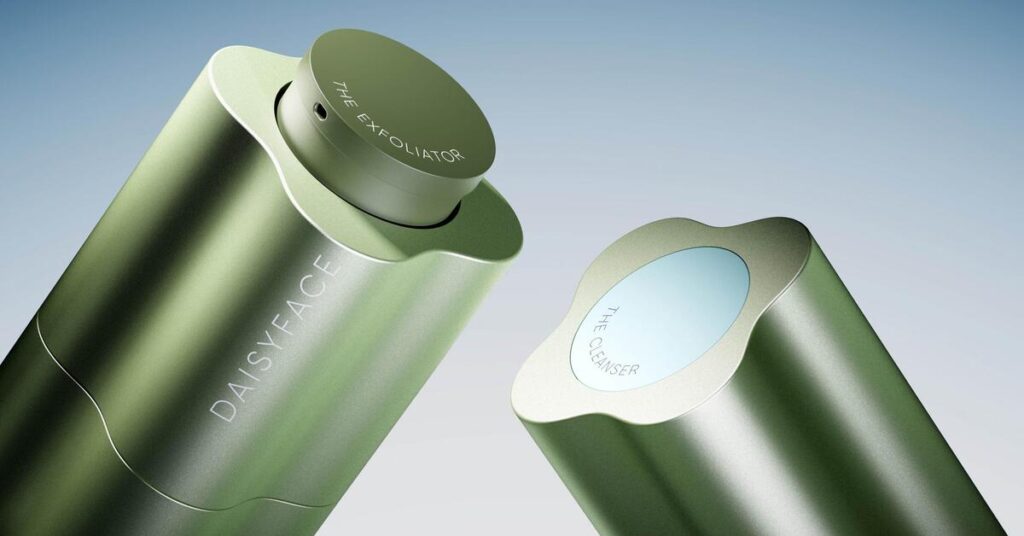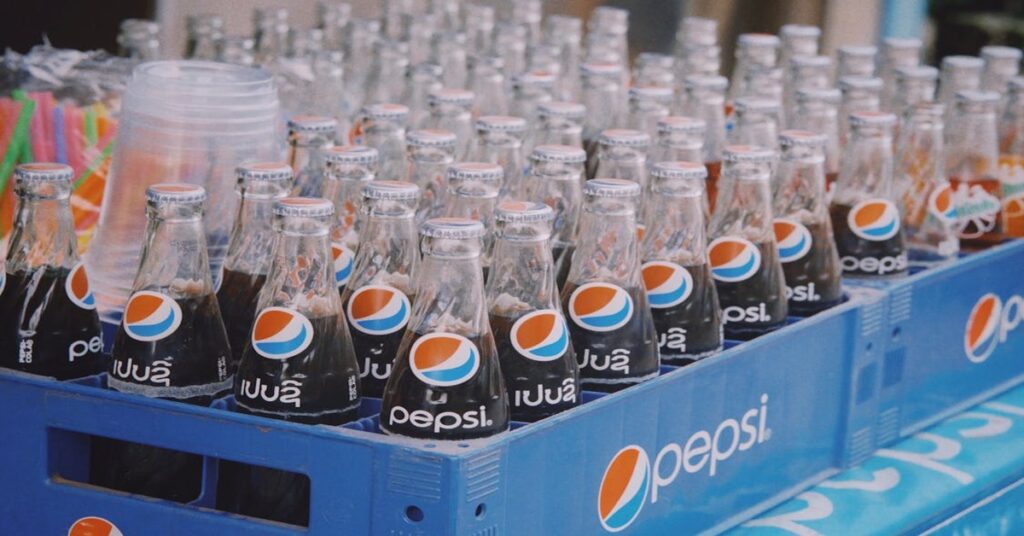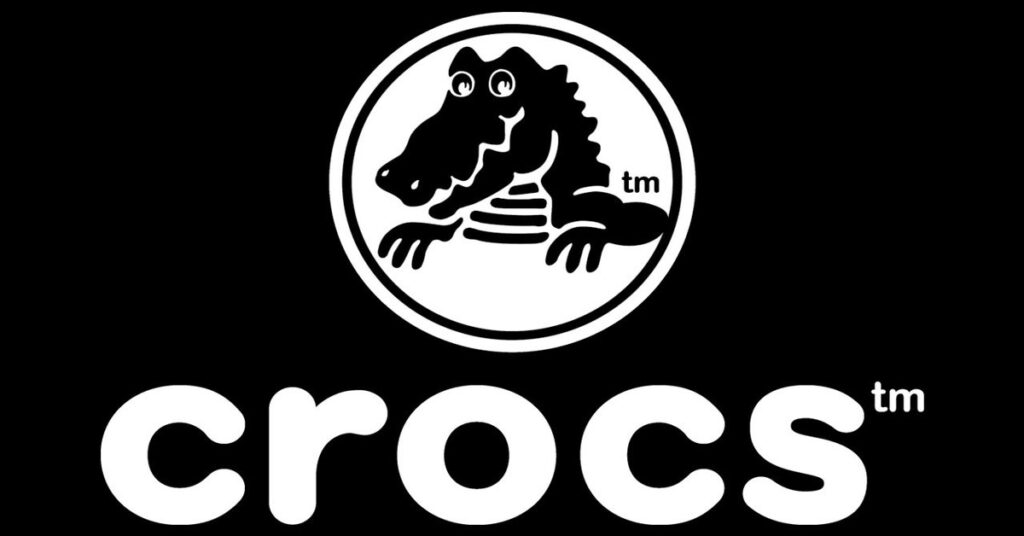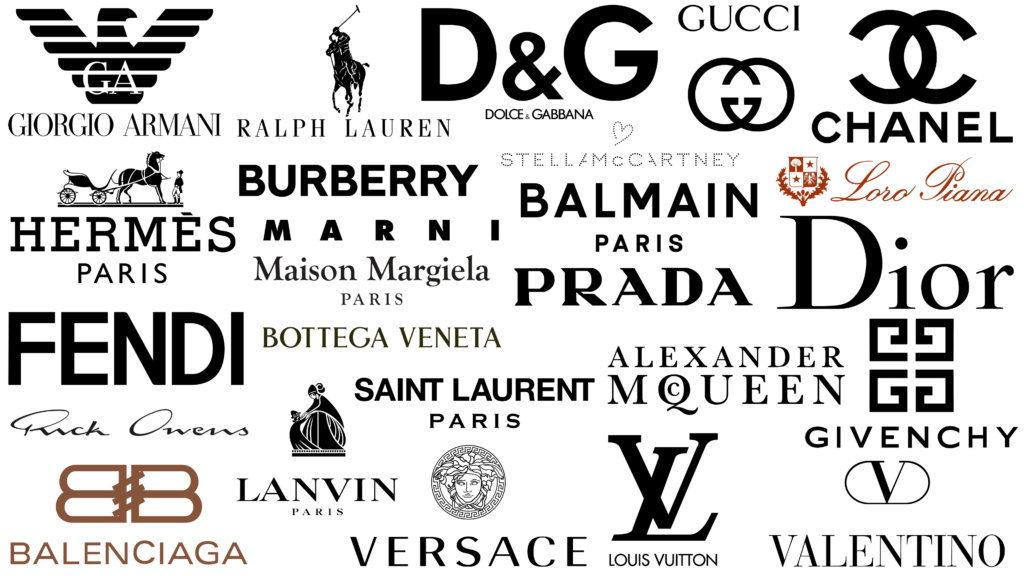The textile industry is notorious for its contribution to waste and landfill. However, not many people are aware of the harmful impact of synthetic chemicals used to dye materials in textile production. These chemicals are not only damaging to the environment but also to the workers and wearers of the final product. Fortunately, AIZOME, a startup that blends traditional Japanese techniques with new ways of dyeing, has developed an eco-friendly approach to textile production. Let’s know about it.
The Problem with Synthetic Chemicals in Textile Production
Synthetic chemicals used in textile production are harmful to the environment, as they contribute to water pollution and carbon emissions. Additionally, these chemicals can cause skin irritation, allergies, and other health problems for workers and wearers of the final product. The production of synthetic dyes also involves toxic chemicals, which can be harmful to workers’ health and well-being.
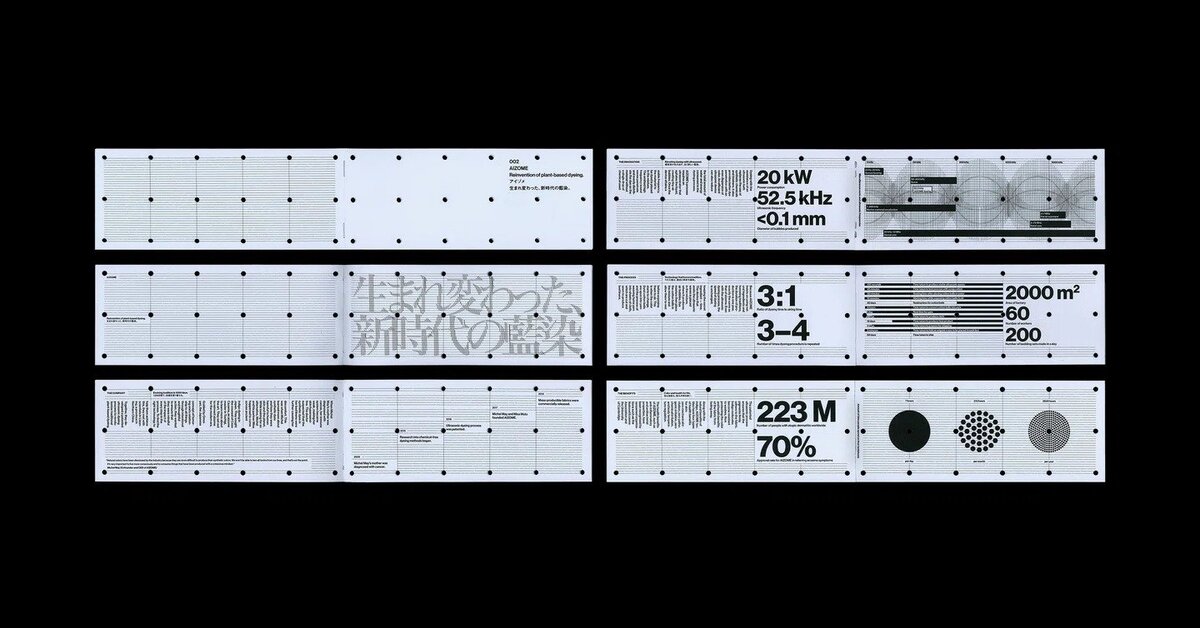
AIZOME’s Innovative and Eco-Friendly Dyeing Techniques
AIZOME adopts an eco-friendly approach of textile production which involves using traditional Japanese techniques combined with new ways of dyeing, which utilize water, medicinal plants, and ultrasound. This process not only eliminates the use of synthetic chemicals but also reduces water consumption and carbon emissions.
A ‘Provocative’ Campaign
To spread their message, AIZOME partnered with Serviceplan Innovation, an agency that aims to accelerate innovative startups with creative communication. Serviceplan developed a provocative campaign for AIZOME, which turned the waste product from their dyeing process into a skincare product. This was to prove just how natural their dyeing process is. The product was then sent to leading figures in the textile industry to spread AIZOME’s eco-friendly message.
A Mindful and Cohesive Design
To design the product and packaging for the campaign, Serviceplan enlisted the help of Han Gao, a designer at Workbyworks creative studio known for his clean and effective work. Han was intrigued by the project as the product was the byproduct of another process, so-called waste. To create an unexpected presentation of waste, Han opted for a luxury look without unnecessary packaging. He created a design system based on the structural formula notation in chemistry, reflecting that plant-based dyes are chemical substances. The neutral canvas for displaying unbiased data is created using dots and connecting lines as the main design system, while the color palette is inspired by the specifics of the dyeing process.
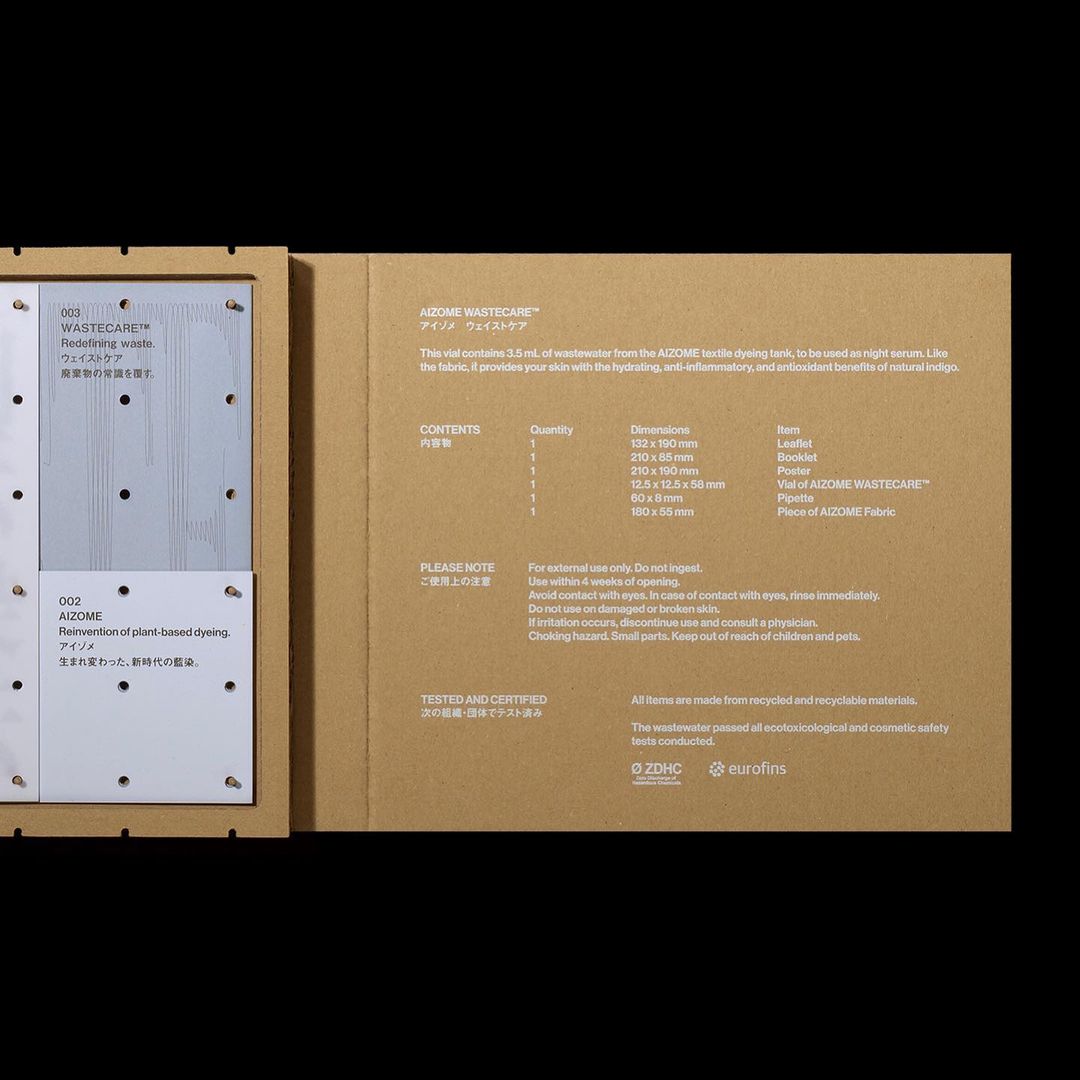
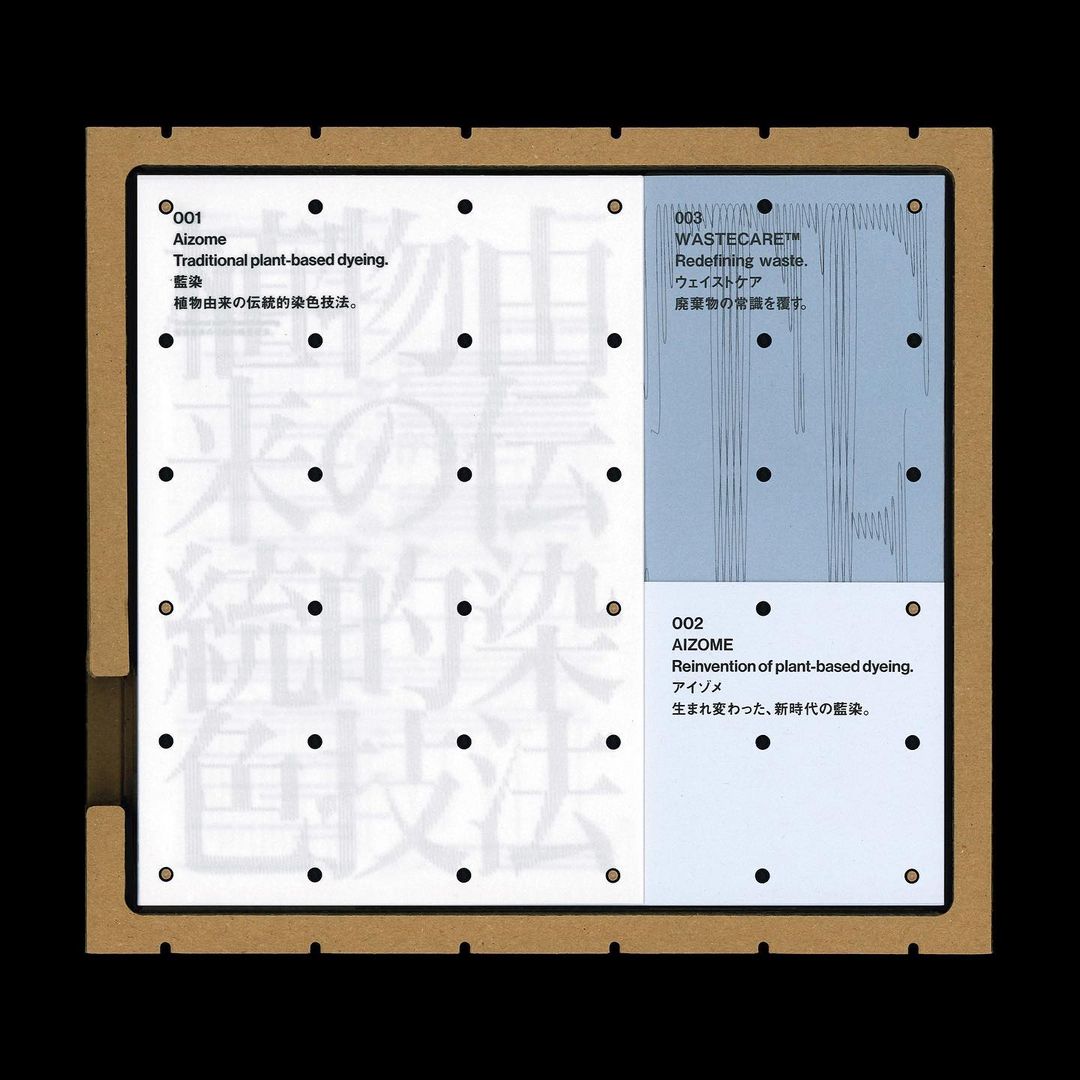
Bottomline
AIZOME’s innovative and eco-friendly approach to textile production is a step in the right direction towards reducing waste and carbon emissions in the textiles industry. Utilizing traditional Japanese techniques as well as new methods, AIZOME proves that sustainable dyeing can be achieved without synthetic chemicals. It is an excellent example of upcycling and waste reduction to use waste products for skincare products. Based on this idea, Serviceplan and designer Han Gao have created a visually striking eco-friendly campaign for AIZOME. With their campaign, AIZOME will be able to raise awareness of the importance of sustainable practices and also for inspiring many more brands to make more sustainable decisions in the future.
Also Read: From Custom-Fit Jeans to Sustainable Fashion: Unspun’s 3D Weaving Solution
